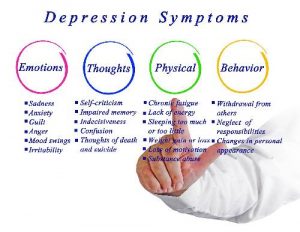Too much sugar causes depression. That’s something science agrees on. There’s a difference between natural sugar and refined or processed sugar. Eating too much refined sugar changes body glucose levels and even swells your brain. A recent study shows that people who eat a lot of processed food high in sugar content, have a 58% increased risk of depression. High blood sugar affects mood, creates anxiety and depression, and weakens your ability to cope with stress.
Natural sugar versus refined or processed sugar
Natural sugar is found as glucose and fructose in fruit, veggies, and grains. Natural sugar is important because it not only gives your body glucose and fructose, but it delivers nutrients, vitamins, and anti-oxidants.
Refined sugar comes from sugar cane or sugar beets. These are processed to extract the sugar which is in the form of sucrose (that’s glucose and fructose molecules combined). Food manufacturers add processed sugar to all kinds of foods and drinks to enhance flavour. But all you’re getting is lots of sugar, and less of the original flavour.
Sugar causes depression
Refined sugars (white sugar, high fructose corn syrup), and refined carbohydrates (white bread, pasta, rice, and most processed foods) use up your body’s B vitamins. B vitamins are important for a healthy mood.
Refined sugars also boost serotonin levels, but only for a short time, like an hour or two. Then serotonin levels get low, just like in depression. Sugar also changes dopamine levels. Eating lots of sugar gives you a “sugar high” quickly followed by a “sugar crash”. You may experience depression, fatigue, irritability, dizziness, excessive sweating, poor concentration, forgetfulness, excessive thirst, and crying spells.
A study of 3,456 middle-aged people found that those who had a diet with lots of processed foods had a 58% increased risk for depression, whereas those who diet contained whole food had a 26% reduced risk for depression.
Refined sugar gives you ‘swollen brain’
Swollen brain is caused by that nice round belly fat hanging around your waist. Glucose, the energy that fuels your body, has been converted to glycogen and then stored as fat. Think of glycogen as a suitcase packed with energy, waiting to be opened. Your body can only handle a certain amount of glycogen suitcases. Too much glycogen, and all those suitcases get stored as fat. To sum up, excess glucose (sugar) is stored as fat.
Eating too much refined sugar changes your insulin levels. Insulin is a hormone released by the pancreas to keep glucose levels normal. Insulin also helps your body store and use glucose. When there’s too much sugar in your system, extra insulin is released to process all the sugar.
Belly fat
Belly fat has insulin resistant fat cells. These insulin resistant cells create cytokines. Cytokines are secreted by cells to help your immune system fight infections. But cytokines can become dysfunctional, especially if there’s too much refined sugar in the body. Cytokines interpret all that extra sugar as inflammation. Cytokines multiply and form a storm of infection fighters that, unfortunately, cause inflammation of anything they touch. Thus your brain tissue becomes inflamed or swollen.
Dysfunctional cytokines have been linked to major depression, schizophrenia, and Alzheimer’s disease. It was thought that diabetes caused depression because of the pain and mood swings. Recently scientists have said swollen brain is the cause of depression in diabetes.
Eating large amounts of processed sugar triggers mood
Your body relies on glucose to fuel itself. Glucose is a simple sugar found in plant-based carbohydrates. Glucose helps you function well physically and mentally. Glucose circulates in your blood, taking energy to all of your cells.
Glucose is essential for your brain to function properly. But unlike your other organs, your brain can’t store glucose. Instead, your brain bathes in a glucose solution that surrounds it. This mixture is constantly refreshed. Your brain’s backup for glucose is your liver. If there’s not enough glucose in the blood, the liver breaks down stored fat to produce ketones which then feed the brain.
When you eat too much processed sugar, you upset the glucose balance in your blood. Large amounts of sugar can trigger feelings of worry, irritability, and sadness. Imagine not eating anything except chocolate during your coffee break. You suddenly feel energized but a few minutes later you’re irritable and moody. If you’re depressed or anxious, this hits your system double hard.
Joys and lows of sugar
Sugar creates a mood change in another way. For example, a woman breaks up with her boyfriend and then binges on chocolate ice cream. Dark chocolate contains natural sugar that boosts mood. Once the sugar leaves the system, its back to feeling sad and grumpy. The cycle of chocolate ice cream bingeing begins.
Processed sugar also boosts serotonin levels, but only for a short time, like an hour or two. After that, serotonin levels quickly drop. This is the “sugar high” and the “sugar low”. Not only does it make you anxious, fidgety, and nervous, you are also likely to be more aggressive.
The sugar high and low cycle is very addictive, just like a drug. Sugar affects the reward centre of your brain. Dopamine levels change and you get a sugar high. If you doubt this, chug down a couple of 2 litres of pop every hour for a week. Then stop. You’ll have withdrawal symptoms which feel like a panic attack.
Having too much sugar directly affects your mood. Sugar causes depression. It’s important to be aware of and regulate how much sugar you have daily. It’s also important to know the difference between natural sugar and refined (or processed) sugar. Sugar can be highly addictive and, just like any drug, very difficult to stop using. Belly fat releases cytokines which create swollen brain. This is linked to major depression, schizophrenia, and Alzheimer’s disease.
Visit me on Twitter @tereziafarkas
Visit my website http://www.tereziafarkas.com



